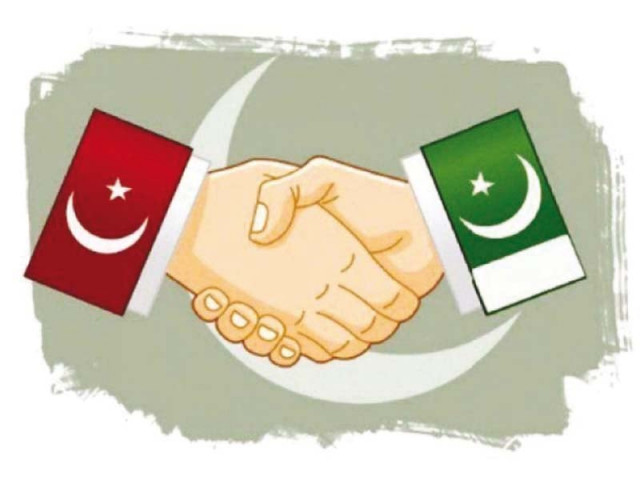Energy sector may finally draw Turkish investors to Pakistan
Middle East crisis is gravely impacting Ankara and its foreign policy

This was stated by a Turkish researcher in a talk on “70 Years of Pakistan-Turkey Diplomatic Relations” organised by the Institute of Strategic Studies Islamabad (ISSI) on Tuesday.
Ankara Centre for Strategic Research (CSR) Acting Chairman Dr Mesut Özcan spoke at length about the Turkish Foreign Policy.
In the 1990s, Dr Özcan said, there were hopes for a liberal international order. However, the turbulent environment in the neighbouring region pushed Turkey’s foreign policy to become more security-oriented.
At the moment, several regional dynamics affect Turkish foreign policy, he said. In particular, he pointed towards the situation in the Middle East which was creating grave security issues for Turkey.
Moreover, the deteriorating European Union-Turkey relations, the growth of xenophobia in the west, and the refugee crisis, Dr Özcan said, were severely impacting Ankara.
Talking about Pakistan-Turkey relations, he stated that though there was a massive gap in the economic trends, Turkish investment and investor interest in Pakistan had increased of late.
In particular, he said, there was interest in the energy sector.
This, he hoped, would enable a more stable and durable relationship between the two countries — particularly on the economic and trade front.
“Pakistan has always been a traditional ally and a friend. Turkish foreign policy towards Pakistan has been something like a romantic movie,” Dr Ufuk Ulutas, a Turkish researcher and columnist said, during his speech.
Dr Ulutas gave a briefing about the Turkish perspective on the developments in the Middle East. He said that there were four phenomena which were currently shaping, and will continue to shape, the Middle East in the future. These include the failed state, ripple effects from the proxy wars, emergence of violent non-state actors and the refugee issue.
With regard to the refugee issue, Dr Ulutas said that it is not only a political and economic problem, it is also a security issue.
Focusing on the situations in Syria, Iraq and the Arabian Gulf, he stated that the current Astana process is a key example of how this process — even though the mediating parties have differing views — has managed to find a middle ground for peace in Syria.
With regard to the Gulf crisis, which Dr Ulutas termed a potential proxy war between Iran and Saudi Arabia, needs to stop since another politically motivated crisis can be destructive for the entire region.
Earlier, ISSI Chairman Ambassador Khalid Mahmood briefed the audience about the agreement signed between ISSI and CSR.
He went on to talk about Pakistan-Turkey relations and stated that relations between the two countries predate the Partition and creation of Pakistan. He added that the ties are based on common faith and shared culture.
Ambassador Mahmood added that Turkey’s stance on Kashmir is of particular importance since Turkey has always voiced unconditional support for Pakistan at all forums.
Likewise, he said that Pakistan had supported Turkey over contentious issues such as Northern Cyprus.
Talking about investment opportunities, the ISSI chairman stated that the China Pakistan Economic Corridor (CPEC) - now in its implementation stage – will provide attractive opportunities for Turkish investors as well.
Noting Turkey’s constructive role in bringing stability to the Middle East, he said that Islamabad greatly values its relationship with Ankara and hoped that it would continue to prosper.
Published in The Express Tribune, November 29th, 2017.



















COMMENTS
Comments are moderated and generally will be posted if they are on-topic and not abusive.
For more information, please see our Comments FAQ